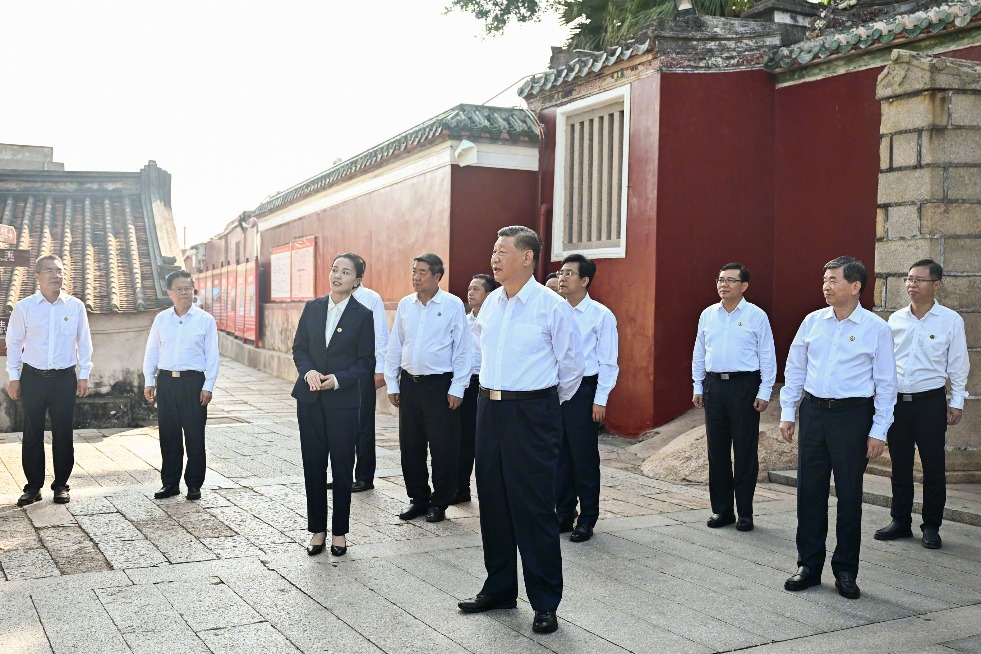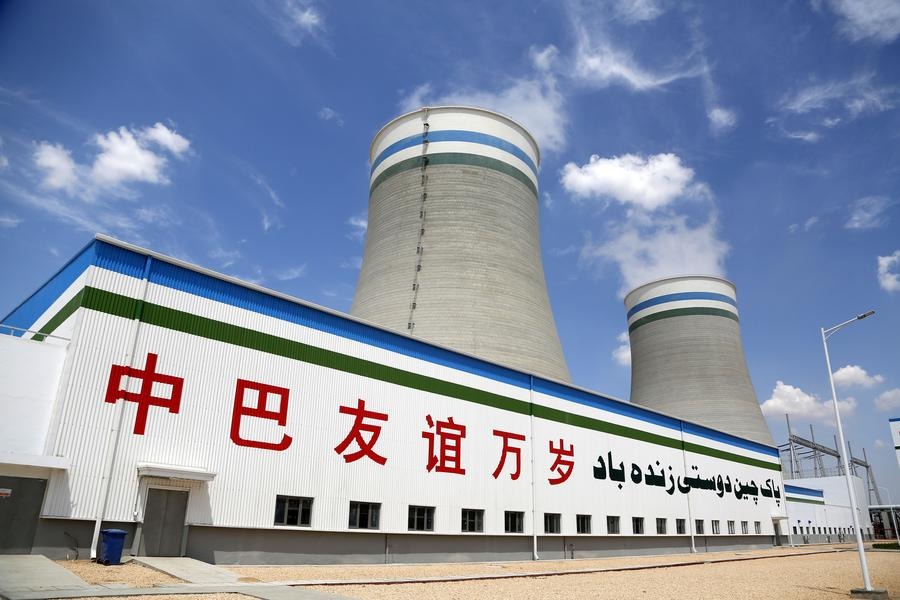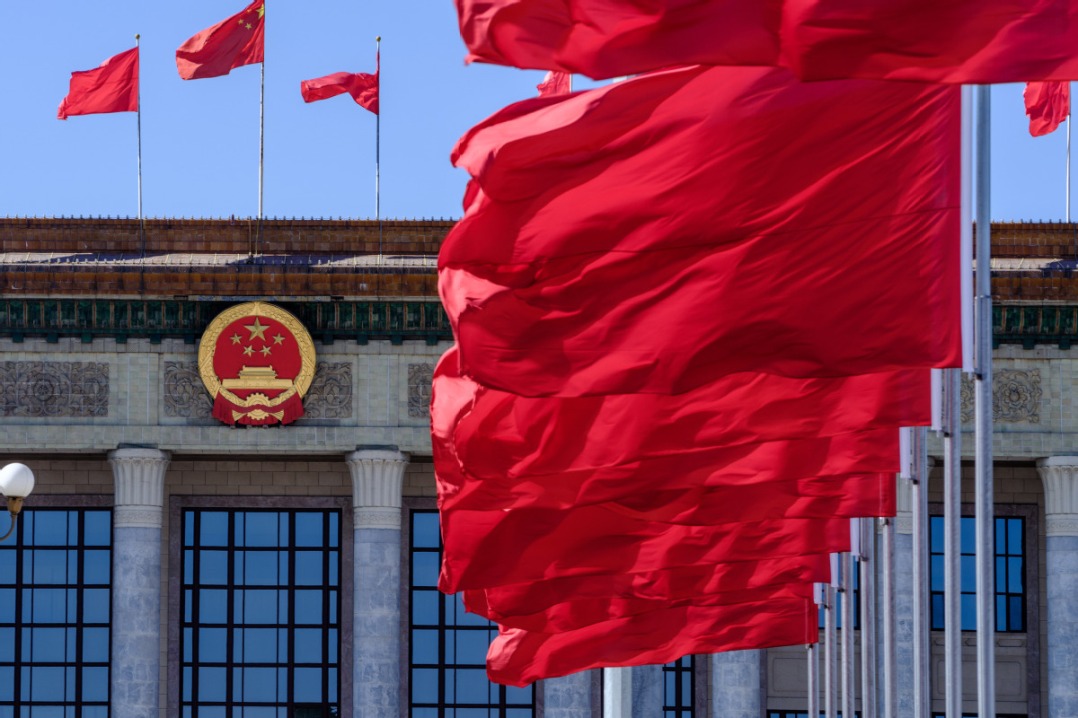Obstacles and opportunities
Although there has been some domestic opposition to New Zealand's participation in the BRI, it has benefited the country in tangible and intangible ways


This year marks the 10th anniversary of the China-New Zealand comprehensive strategic partnership. Over the past decade, both countries have cooperated in numerous key areas, including infrastructure construction, trade, and people-to-people exchanges, achieving significant milestones, especially under the framework of the Belt and Road Initiative. In 2022, New Zealand's cooperation agreement with China on the BRI was automatically renewed, extending New Zealand's BRI cooperation with China for another five years.
China and New Zealand have created many "firsts", enhancing their bilateral ties. Notably, New Zealand was the first developed Western country to support China's accession to the World Trade Organization in 1997 and recognize China as a market economy in 2004. These actions were meaningful for China, facilitating its integration into the global economic framework. Moreover, New Zealand was the first developed Western country to sign and implement a bilateral Free Trade Agreement with China in 2008, the first to renew this agreement, and the first to join the China-initiated Asian Infrastructure Investment Bank as a founding member. In 2017, New Zealand became the first developed Western country to sign a BRI cooperation agreement with China.
Regarding their cooperation under the BRI framework, it is noteworthy that New Zealand, like any country, requires infrastructure improvement. This need has become a prime concern for its central government and is frequently discussed by New Zealanders, especially during almost every local election. Improving infrastructure not only brings convenience and enhances the quality of life but also positively impacts the production system and supply chain. However, undertaking new infrastructure construction or upgrading existing structures are labor-intensive projects that require considerable investment of time and capital.
Nevertheless, China-New Zealand cooperation under the BRI framework transcends infrastructure construction. Considerable progress has been made in many other fields. For example, following the approval of China's Ministry of Education in 2017, seven Pacific island countries' languages, including Maori, have been taught at Beijing Foreign Studies University since 2020 as part of China-New Zealand BRI cooperation. The revitalization and promotion of the Maori language have been a topic of intense debate continued public discussions in New Zealand. The New Zealand government and Maori communities across the country appreciate China's efforts to preserve and help reinforce the Maori language and culture. By encouraging the learning of the indigenous language and culture of New Zealand and other Pacific island countries, China helps promote mutual understanding among civilizations and enhances people-to-people and cultural exchanges between China and New Zealand under the BRI framework. This also aligns with the BRI principles of mutual respect, inclusiveness, and mutual benefits. Thus, it would be unfair to say that no progress has been made under the BRI.
New Zealand is a country that embraces pragmatism. Like China, its government prioritizes its people's needs and is therefore willing to cooperate with China to further its national development. While it is impossible to eliminate the misconceptions held by certain groups of people, as differing voices will always exist, it remains essential for China and New Zealand to expand their existing cooperation and actively search for future collaboration opportunities under the BRI. For example, with New Zealand's central bank exploring a digital currency and digital payment systems, there is potential for China and New Zealand to consider expanding cooperation in the e-commerce and digital economy sectors. Given that China has taken the lead globally in building a cashless society, its experience can significantly help may be of use to New Zealand in unlocking its digital potential. Particularly, both countries could collaborate to improve access to digital economic services for digitally marginalized social groups. A case in point is the New Zealand China Council, established by the New Zealand government in 2012, which has been assisting the Maori people in New Zealand to adapt to the digital economic transformation and integrate fully into the system. China's experience in making digital transactions easier and more accessible for senior citizens and remote rural communities with poor internet connectivity can provide valuable insights for New Zealand.
The BRI is a constantly evolving and upgrading initiative that continually adjusts to effectively meet the changing needs of China and other BRI participating countries. Although the BRI has faced intense criticism from many quarters for making little progress in constructing and completing large-scale infrastructure projects in New Zealand, it is important to recognize that some Pacific island countries, including New Zealand, may prefer projects that are "small but beautiful," as well as being practical. Moreover, with the BRI in place for years, it has effectively promoted cultural and people-to-people exchanges between China and New Zealand, which, in a sense, has enhanced mutual understanding and opened up more opportunities for cooperation between the two countries.
Looking ahead, the future of China-New Zealand cooperation under the multidimensional BRI appears promising. To create more mutually beneficial outcomes, it is essential for China and New Zealand to join hands and continue working together on areas of practical concern for both countries peoples.
The author is a senior visiting fellow of the Institute for Global Cooperation and Understanding at Peking University and a research fellow at the New Zealand Asia Institute at University of Auckland. The author contributed this article to China Watch, a think tank powered by China Daily. The views do not necessarily reflect those of China Daily.
Contact the editor at [email protected].


































